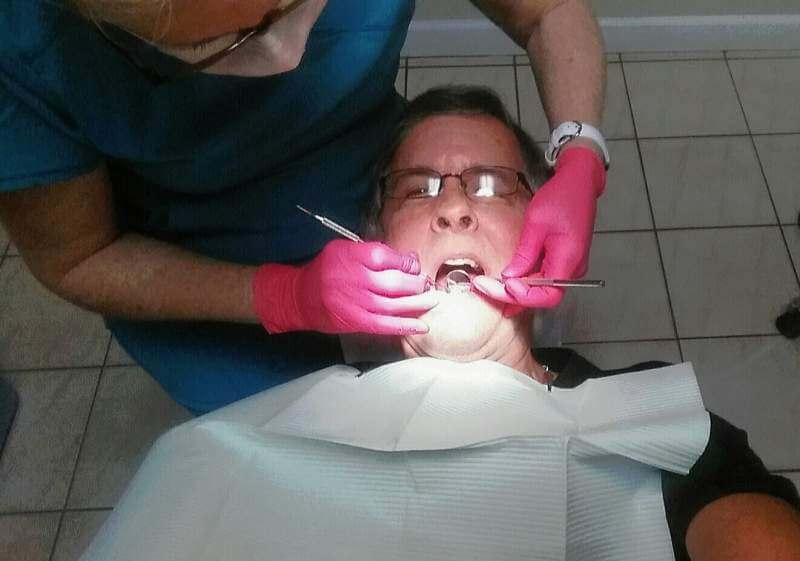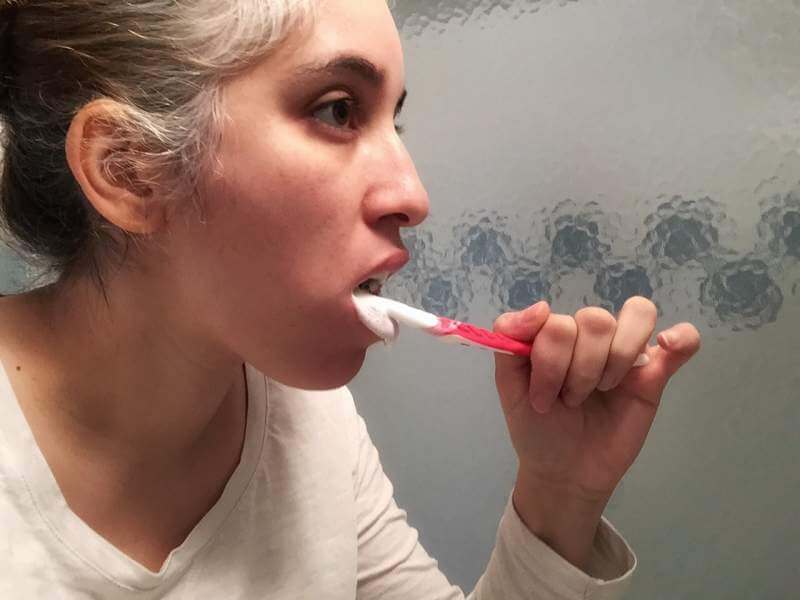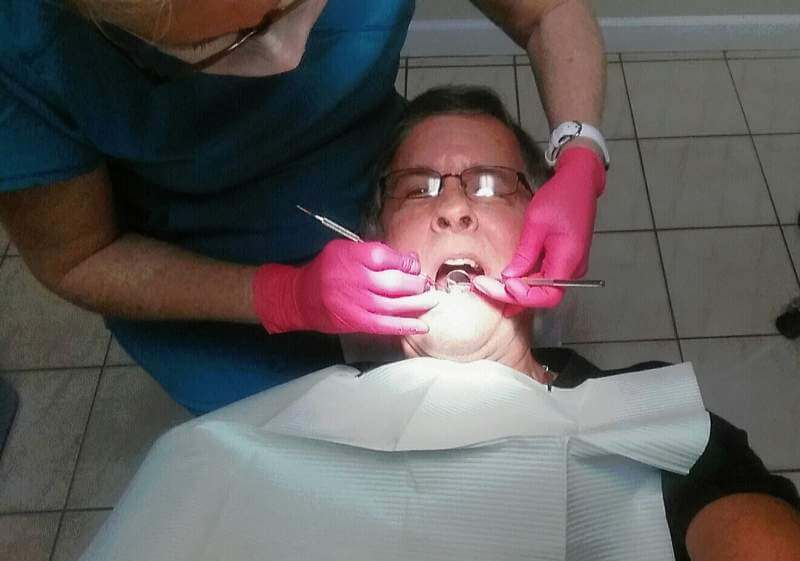If you’re wondering if you should visit your dentist downtown Seattle to get fluoride treatments, you probably should, even as adults.
Fluoride is a very important mineral for our teeth, and it also happens to be fairly abundant in nature, occurring naturally in water and many different foods. Our teeth are already covered by a mineral layer known as the enamel, and this layer loses and gains minerals every day. The process of losing minerals is known as demineralization while the process of regaining the minerals is known as remineralization.
Demineralization and Remineralization
 Minerals are lost when the enamel is attacked by acids, which are formed by the bacteria that live on the teeth. When these bacteria feed on the sugar that gets left on the teeth when we don’t clean them, they produce plaque, which contains acid.
Minerals are lost when the enamel is attacked by acids, which are formed by the bacteria that live on the teeth. When these bacteria feed on the sugar that gets left on the teeth when we don’t clean them, they produce plaque, which contains acid.
The minerals will be gained by the enamel from the different foods we eat and the water we drink. These minerals include phosphate, calcium and fluoride. For our enamels to remain healthy, there has to be some balance between demineralization and remineralization. If there is too much demineralization without enough remineralization, then the enamel will slowly decay.
Fluoride, therefore, helps to prevent decay in our teeth by enabling them to fight off the corroding acids that accumulate on them. It can also reverse decay in its early stages. Fluoride is very important in the dental development of children under the age of 6 since it is important for the development of permanent teeth and gives them a fighting chance against acids that threaten to demineralize them.
That doesn’t mean that fluoride is useful only for children. Due to the continuous processes of demineralization and remineralization, fluoride is important in adults as well. You should do all you can to make sure your teeth are getting enough fluoride.
It’s important for infants to get fluoride, as well as children up to the age of 16. This is a critical period in the development of the teeth as this is when the primary and permanent teeth develop. Adults also have a lot to gain from fluoride. Fluoride is just as important for adults as it is in children when it comes to fighting decay.
The Different Forms of Fluoride

While fluoride is found in food and water, it can also be directly applied to the teeth through mouth rinses and toothpaste. Most of the fluoridated mouth rinses you can get over the counter have lower concentrations of fluoride while mouth rinses with higher concentrations of fluoride can only be obtained with a doctor’s prescription.
A doctor can also apply fluoride to your teeth directly in the form of a varnish, foam or gel. Gels can be applied on the teeth via a mouth guard or painted on them. Foam is put into a mouth guard, and then the mouth guard is applied to the teeth for anywhere up to four minutes. Varnishes are painted directly onto the teeth.
Adult Dental Health: the Importance of Flouride
 A host of factors including eating habits, diet, and lifestyle affects our overall dental health along with dental hygiene habits. Some individuals are also more susceptible to developing tooth decay compared to others. Whatever the case may be, our teeth seem to be almost always exposed to things and habits that can compromise its strength and stability.
A host of factors including eating habits, diet, and lifestyle affects our overall dental health along with dental hygiene habits. Some individuals are also more susceptible to developing tooth decay compared to others. Whatever the case may be, our teeth seem to be almost always exposed to things and habits that can compromise its strength and stability.
For many years, fluoride has been a staple in many dental health care solutions because of its effectiveness in preventing tooth decay and in making the teeth stronger. Its antibacterial properties also help maintain healthy gums that are essential in keeping the teeth healthy as well.
As mentioned, earlier flouride is one of the most common ingredients in dental hygiene products such as toothpaste and mouthwash. A healthy habit using these products, therefore, will provide your teeth with this helpful mineral. Eating foods that are rich in fluoride such as tea, fish and yes, even water will also give your teeth a good dose of flouride.
This gives rise to the question, how much fluoride to you need?
Flouride: How Much Do We Need?
 A visit to the dentist will determine the amount of fluoride that you require. Depending on your current oral health and if you at a high risk of developing cavities, your dentist may even require home fluoride gel treatments or special fluoride rinses. Your dentist may also ask you a few questions to determine if you are at a higher risk of developing tooth decay.
A visit to the dentist will determine the amount of fluoride that you require. Depending on your current oral health and if you at a high risk of developing cavities, your dentist may even require home fluoride gel treatments or special fluoride rinses. Your dentist may also ask you a few questions to determine if you are at a higher risk of developing tooth decay.
You risk of developing cavities increases if you are doing any of the following:
- You are a habitual drinker.
- You have an eating disorder.
- You have poor dental habits.
- You eat unhealthy foods.
- Your teeth have a naturally weak and thin enamel coating.
Apart from toothpaste and other home dental hygiene solutions, you can also get regular fluoride treatment from your dentist to further strengthen your teeth. Your dentist will also determine whether you need treatment every three or six months. Those who have relatively healthy teeth and gums may only undergo professional fluoride treatment once a year.
The Bad Side of Flouride
 Before you go crazy on using fluoride on your teeth, it is important to note that using too much of it is also bad for your teeth. Yes, you can also overdose on fluoride and its toxic effects can be dangerous. While fluoride poisoning rarely happens, too much fluoride will actually have the opposite effect on the teeth. This is the reason why most children’s toothpaste don’t have fluoride.
Before you go crazy on using fluoride on your teeth, it is important to note that using too much of it is also bad for your teeth. Yes, you can also overdose on fluoride and its toxic effects can be dangerous. While fluoride poisoning rarely happens, too much fluoride will actually have the opposite effect on the teeth. This is the reason why most children’s toothpaste don’t have fluoride.
You’ll know that you are using too much fluoride you see or experience any of the following:
- Your teeth are dense but are brittle
- You have stains and pits on your teeth
- You see white specks on your teeth
You’ll know you are experiencing fluoride toxicity from excessive use of these minerals if you experience any of the following symptoms.
- Nausea
- Diarrhea
- Fatigue
- Excessive perspiration
If left unchecked, fluoride toxicity can even be fatal. So if you are using any fluoride solutions at home, make sure to store it in places where the children can’t get to them.
There are also fluoride supplements, which can be consumed to add fluoride to the teeth. They come either as tablets or as liquids. Fluoride supplements have to be prescribed for you to acquire them, however.





